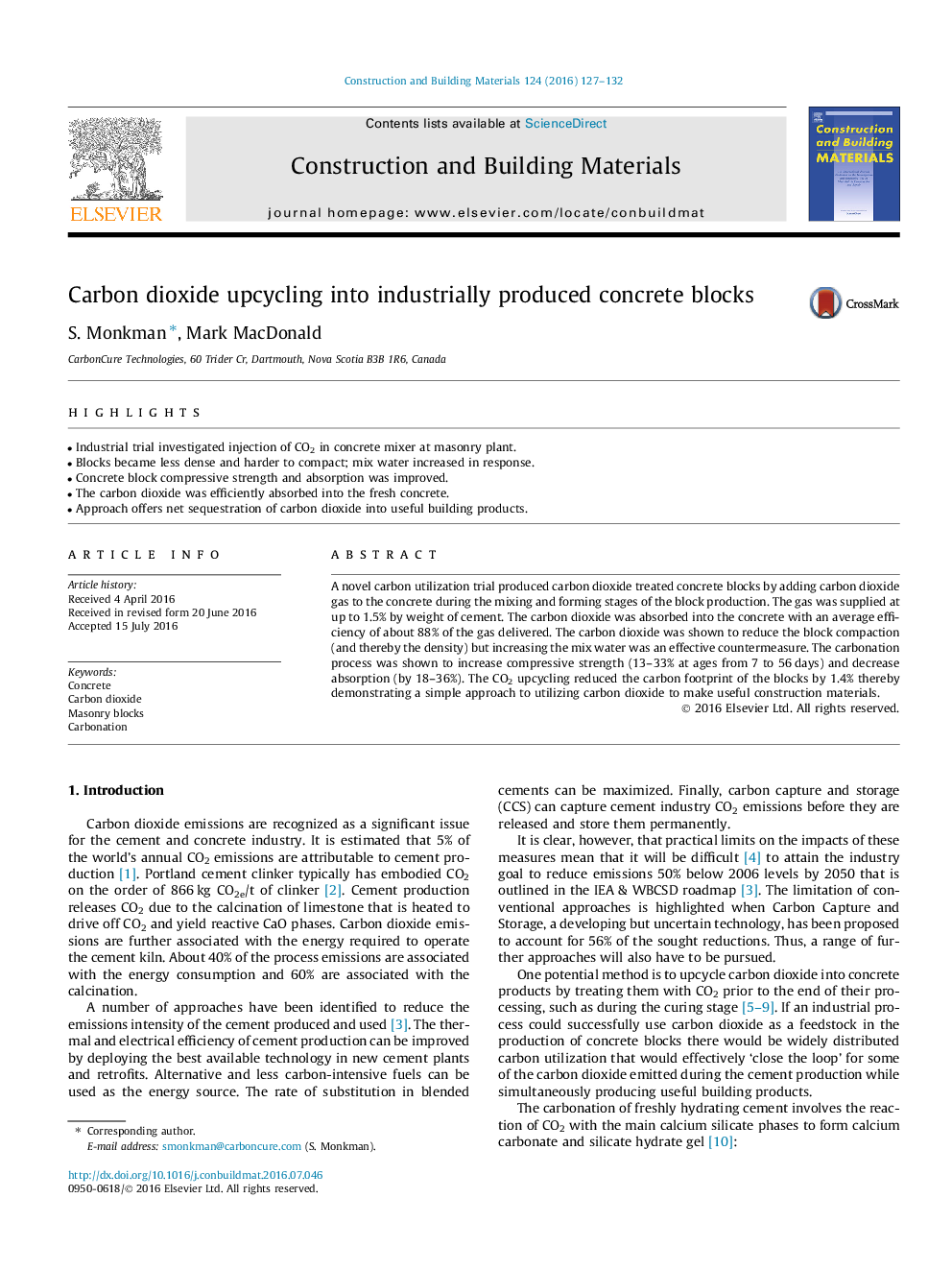| Article ID | Journal | Published Year | Pages | File Type |
|---|---|---|---|---|
| 255669 | Construction and Building Materials | 2016 | 6 Pages |
•Industrial trial investigated injection of CO2 in concrete mixer at masonry plant.•Blocks became less dense and harder to compact; mix water increased in response.•Concrete block compressive strength and absorption was improved.•The carbon dioxide was efficiently absorbed into the fresh concrete.•Approach offers net sequestration of carbon dioxide into useful building products.
A novel carbon utilization trial produced carbon dioxide treated concrete blocks by adding carbon dioxide gas to the concrete during the mixing and forming stages of the block production. The gas was supplied at up to 1.5% by weight of cement. The carbon dioxide was absorbed into the concrete with an average efficiency of about 88% of the gas delivered. The carbon dioxide was shown to reduce the block compaction (and thereby the density) but increasing the mix water was an effective countermeasure. The carbonation process was shown to increase compressive strength (13–33% at ages from 7 to 56 days) and decrease absorption (by 18–36%). The CO2 upcycling reduced the carbon footprint of the blocks by 1.4% thereby demonstrating a simple approach to utilizing carbon dioxide to make useful construction materials.
